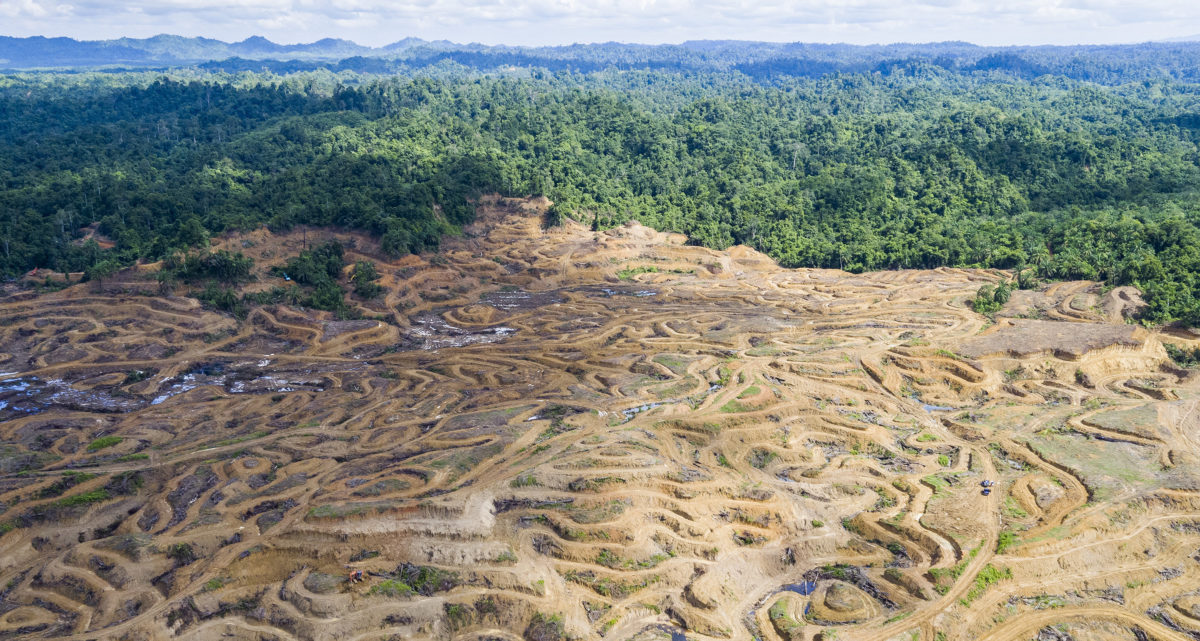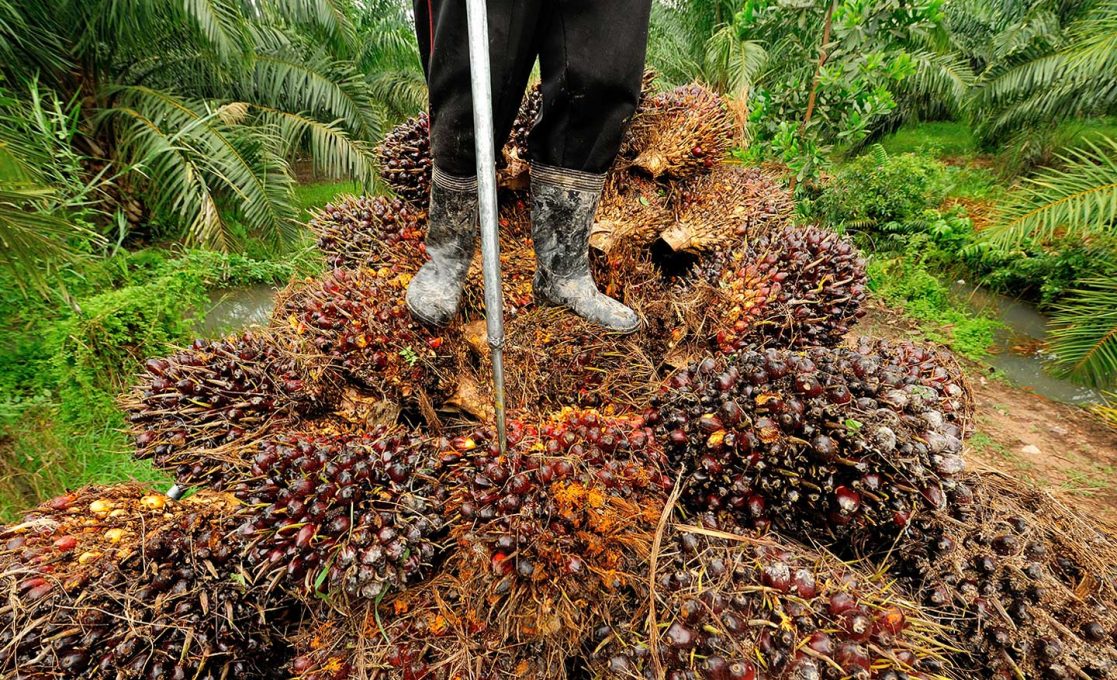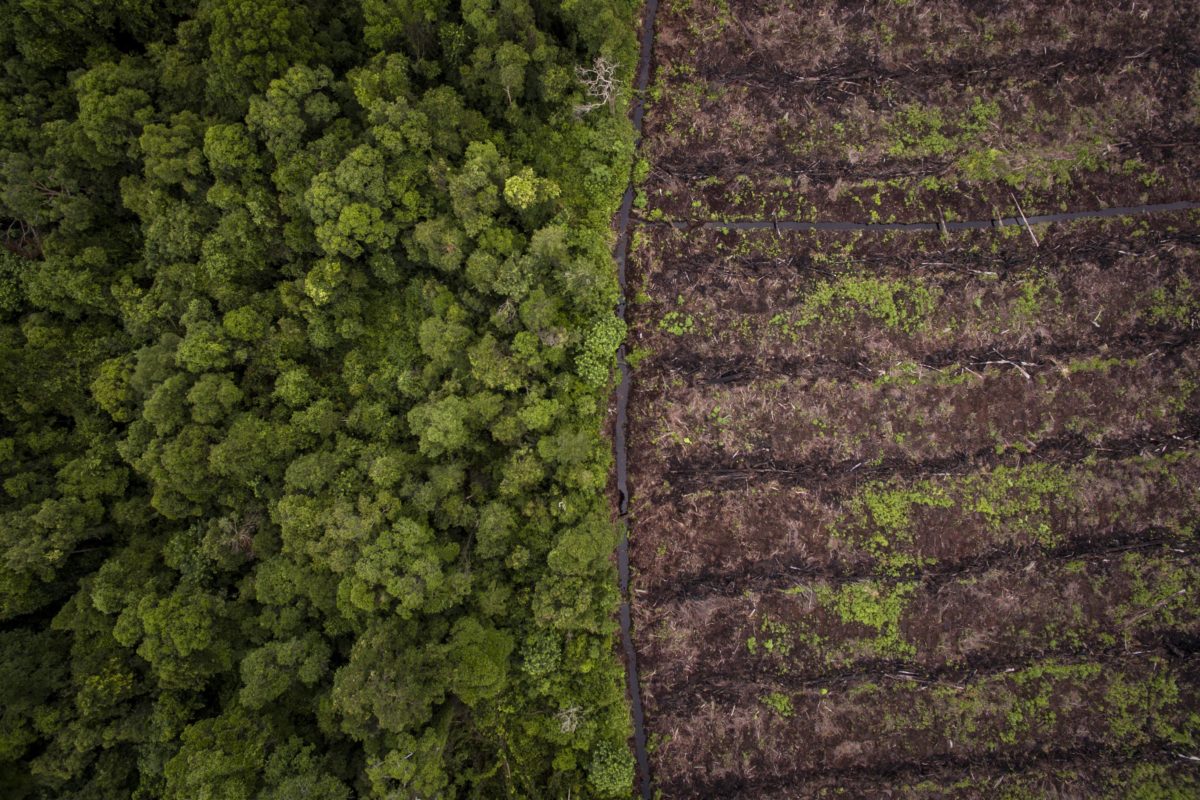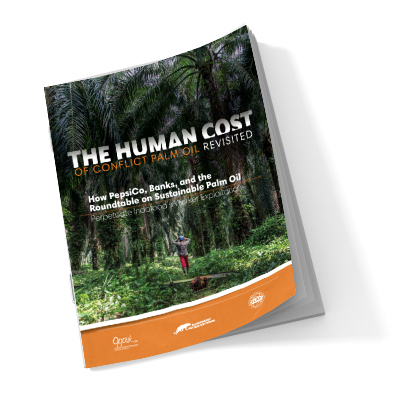The destruction of our world’s rainforests is being driven by corporate profits.
Big Agribusiness is causing lasting global devastation by growing and selling forest-destroying commodities for short-term corporate gains.
Some of the world’s best-known brands — household names — are driving the demand for cheap, forest-destroying commodities like palm oil, pulp and paper, timber, beef, soy, and cocoa. While some of the world’s biggest banks are investing billions into agribusiness companies driving deforestation and human rights violations. Millions of hectares of rainforests are burned or bulldozed in Indonesia, the Amazon, and the Congo to make way for plantations, roads, and factories.
While many of the biggest brands have made commitments pledging to stop destroying rainforests across their supply chains, these same companies have failed to meet their own timelines or deliver on their promises. That’s why we’re committed to holding these companies accountable.
Corporations have a moral and ethical obligation to end deforestation once and for all and to uphold human rights. Profit and doing the right thing are not mutually exclusive. But rainforests are irreplaceable and short-term profits for cheap agriculture are a threat to us all.
Conflict Palm Oil is found in roughly half of all packaged products sold in U.S. grocery stores.
As “Palm Oil” or as a hidden ingredient, it’s in everything from snack foods like chips and ice cream to candy and instant noodles. It’s even found in household items like soaps and lotions, toothpaste and shampoo. Palm oil has become the most widely used vegetable oil on Earth.
Like many of the agribusiness commodities responsible for rainforest destruction, Conflict Palm Oil plantations are monoculture crops. That means that where these plantations now stand, there were once diverse rainforest habitats that animals like endangered rhinos, tigers, elephants, and orangutans called home. Not only do Conflict Palm Oil plantations destroy habitat, but they create inroads into the forest that increase the threat of poaching.
Clearing rainforests also leads to destroying hundreds — even thousands — of years of carbon storage through the destruction of peatlands. So by destroying rainforest habitat and peatlands to make room for monoculture crops, these companies are causing a massive spike in greenhouse gasses, as centuries of stored carbon are released into the atmosphere.

Agribusiness can’t hide its human rights abuses.
So many peoples’ lives have been changed for the worse: from communities who have had their ancestral lands stolen from them and destroyed, to plantation workers who suffer labor abuse. And when peatlands and forests are burned, millions of people suffer the effects of horrible pollution and haze.The plantations themselves are isolated from major towns, and workers are often paid poverty wages and denied adequate health care. But what’s worse, is that workers are often given such high palm quotas that they’re forced to have their families, including children, work alongside them for free, just so that they don’t lose their jobs. And if that weren’t bad enough, forced labor and human trafficking are pervasive in the palm oil industry.
The companies running these plantations are well aware of the labor exploitation they’re profiting from. They expose women and children to unknown pesticides with little-to-no protection provided. And as long as kids work alongside their families rather than go to school, this cycle of abuse, exploitation, and poverty will go and on.
These are just some of the tragedies that play out for more than just palm oil production but all across the supply chains for the products that line our grocery store aisles.

We follow the global supply chain.
The corporate drivers of deforestation not only have massive influence over how their suppliers produce palm oil, soy, cocoa, pulp, paper, timber and beef, but also over each other.
That’s why RAN follows the supply chain to influence the big brands you see on grocery store shelves. Our work is not only to move corporations, but to move entire sectors, creating a domino effect all the way back to the agribusiness suppliers themselves.
You have the power to influence these brands and stop deforestation and human rights abuses. You’ve helped us move some of the biggest market players in the world to publicly commit to no deforestation policies. Now it’s time to hold these corporations responsible for implementing their own promises.

